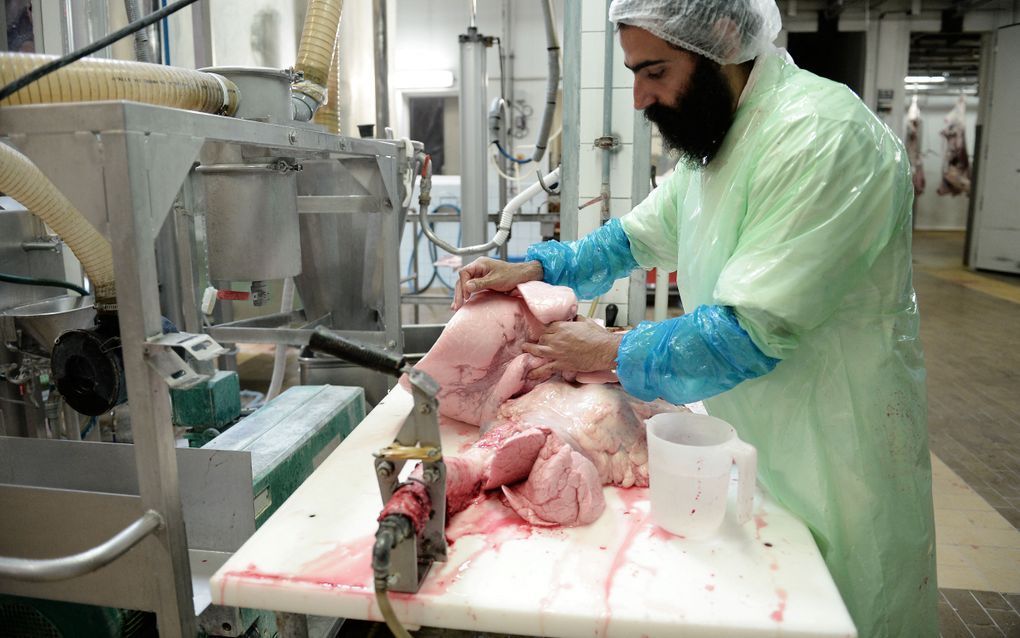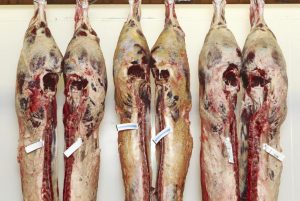Conservative politician in Europe has been accused of “blatant discrimination” and introducing the “21st century equivalent of the yellow star” after he launched new plans to label kosher meat.
The controversial proposal has been re-introduced by a Dutch MEP Gerben-Jan Gerbrandy. It is set to be debated on 11 April, at the same time as a separate amendment proposed by Scottish Conservative MEP Struan Stevenson.
MEP Struan Stevenson, who represents Scotland in the European Parliament, has drafted an amendment to the food information bill which calls for kosher meat to be labelled “this product comes from an animal slaughtered by the shechitah method”.
He has asked for similar labelling for halal meat.
Last year, the European Council of Ministers rejected an amendment, supported by Mr Stevenson, which called for kosher meat to be labelled “meat from slaughter without stunning”.
This amendment has also been reintroduced.
Shimon Cohen, of lobby group Shechita UK, said he was “completely surprised” to hear Mr Stevenson’s plans after a meeting with him last October gave the impression he would not pursue the amendment after it was ruled out by the council.
Mr Cohen said: “I felt he had recognised that singling out Jews in this way was unfair and that he would be working towards a fairer way to achieve full food information to the consumer.
“It seems he has gone the other way and chosen to single us out directly. This isn’t about food information. We are not told the religion of any other slaughterer, or about the method of slaughter, or about whether the animal was mis-stunned.
“Mr Stevenson is picking on Jews and Muslims by saying that only their slaughter methods should be labelled. He is blatantly discriminating against our communities.”
In a letter to Stevenson, he argued that the amendment “essentially has the same effect but in a more direct manner” as last year’s failed proposal. Cohen wrote: “If you were labelling every other form of slaughter, religious and secular, including stunning methods and incidences of mis-stunning then we would accept that this was a fairer form of labelling. But as your amendment stands, it is discrimination of the most direct kind.”
Campaigners fear the amendment could cause kosher prices to “rocket” because buyers from the non-kosher market, which consumes 70 per cent of shechitah-slaughtered meat, may be put off by the labelling.
“It is the 21st century equivalent of the yellow star, but on our food,” Mr Cohen said.
“Mr Stevenson is a known opponent of shechitah and he is doing all he can to sow doubts in the minds of consumers about our slaughter methods, which are in fact both legal and humane – far more humane than the electrocution, clubbing, shooting and gassing that takes place in secular slaughter.”
But Mr Stevenson, who is from a farming background, insisted that the accusations were a “bullying and hysterical reaction” and maintained that his amendment was in “no way discriminatory”.
“My amendments are driven solely by a desire to ensure the highest standards of animal welfare are adhered to in the EU,” he said.
“The public assume that all meat products they eat have come from animals slaughtered by pre-stunning, which is what science says is humane.
“It is the public’s right to know if food has not come from what they understand to be the norm.
“If you insist on labelling everything accepted as the norm, you’d have to start labelling bottled water.
“I don’t think shechitah is humane. I have seen animals slaughtered by shechitah and believe they suffer a violent pain.” He said that he had banned his own farm animals from being slaughtered by shechitah.
Shechita UK is calling on the community once again to contact MEPs before a committee approves the amendment to be included in the bill later this month. If it is approved, the bill will then be voted on by the parliament in June.
“Thanks to the exceptional way the community responded last time, it got rejected,” Mr Cohen said. “It will get rejected again if we can recreate that same support.”



